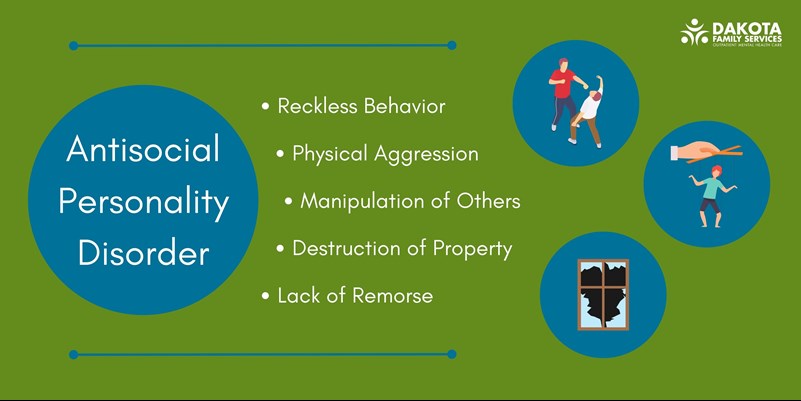Antisocial Personality Disorder (ASPD or APD)
Definition
Antisocial personality disorder is a mental health condition in which a person consistently shows no regard for right and wrong and disregards the rights, feelings, or safety of others. It involves a pattern of manipulating, exploiting, or violating the rights of others. People with antisocial personality disorder may have had a childhood history of behavior problems and issues with authority figures, with a pattern of repeated lying or stealing, and/or problems keeping friends at school. This pattern continues into adulthood.
Antisocial personality disorder is also referred to by the following titles:
- Antisocial Disorder
- ASPD
- APD
Symptoms of Antisocial Personality Disorder
- Physical aggression
- Reckless behavior
- Blaming others
- Breaking the law
- Property destruction
- Lack of remorse
- Manipulating or deceiving others
Key Things to Know About Antisocial Personality Disorder
- People with antisocial personality disorder (ASPD) can seem like bad people. However, you may be surprised to learn that they don't always mean to hurt others. ASPD is an illness, and people with this condition can get the help they need. Knowing more about this condition may help you understand why a person does things that seem cruel, heartless, and even dangerous.
- As people with this disorder may be a risk to themselves, it is important they receive treatment.
- Personality disorders are a group of mental conditions that are defined by patterns of abnormal behavior. More than one percent of the U.S. population is affected by personality disorders.
- According to the Cleveland Clinic, studies suggest that symptoms are worse around ages 24-44, then tend to improve after age 45.
- While there is no set treatment for ASPD, medication and psychotherapy may help control specific behaviors.


